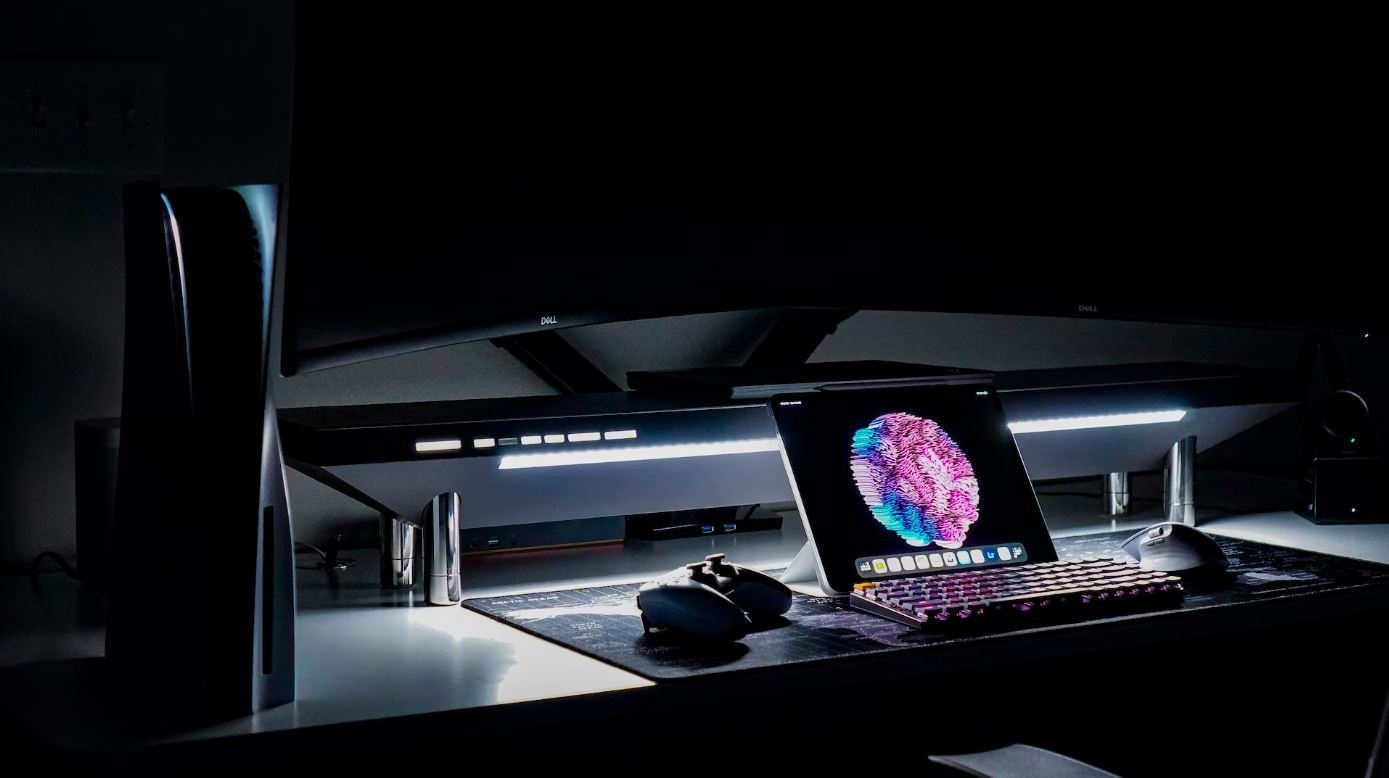AI Job Application Screening
As technology continues to advance, industries are now relying on Artificial Intelligence (AI) to streamline various processes. One area where AI has made significant advancements is in job application screening. AI algorithms can analyze resumes and identify suitable candidates efficiently and accurately. This article explores how AI job application screening works, its benefits, and potential drawbacks.
Key Takeaways
- AI job application screening uses algorithms to analyze resumes and identify suitable candidates.
- Benefits of AI screening include efficiency, unbiased evaluation, and reduction in human error.
- Drawbacks may include the risk of bias in algorithm design and potential challenges in assessing subjective qualities.
- Employers should carefully consider the limitations and potential bias when using AI for job screening.
How Does AI Job Application Screening Work?
AI job application screening involves the use of algorithms to analyze resumes and evaluate candidates based on specific criteria set by employers. These algorithms are typically trained on large datasets that include both successful and unsuccessful hires. The AI system uses natural language processing (NLP) techniques to extract relevant information from resumes, including skills, experience, and qualifications.
The system compares applicants’ resumes with predefined job descriptions and evaluates their match using a combination of machine learning algorithms and pattern recognition. This allows recruiters to quickly identify the most promising candidates for further consideration while filtering out less suitable applicants.
The Benefits of AI Job Application Screening
Employers can experience several benefits by implementing AI job application screening:
- Efficiency: AI algorithms can process a large number of applications in a short period, significantly reducing the time and effort required for initial screening.
- Unbiased Evaluation: By relying on objective criteria, AI screening algorithms can help eliminate unconscious biases that may influence human recruiters.
- Reduction in Human Error: AI can minimize the risk of human oversight or errors by consistently evaluating candidates based on predefined criteria.
These benefits make AI job application screening an attractive option for companies looking to streamline their hiring process and improve candidate selection.
Potential Drawbacks to Consider
While AI job application screening has numerous advantages, it is crucial to be aware of its potential drawbacks:
- Bias in Algorithm Design: If the algorithms used in AI screening are not properly designed and trained, they may unintentionally perpetuate biases already present in the data, leading to unfair evaluation of candidates.
- Subjective Qualities: AI algorithms struggle to assess subjective qualities such as creativity or cultural fit, which may require human judgment during the candidate selection process.
Considering the Limitations
Employers should carefully consider the limitations of AI job application screening to ensure fair and effective selection processes. It is crucial to take the following steps:
- Regular Algorithm Assessment: Continuously evaluate and audit AI screening algorithms to identify and address potential bias or limitations.
- Combining AI and Human Judgment: While AI screening can provide efficient initial evaluations, incorporating human judgment where subjective qualities are important can lead to a more comprehensive assessment.
When used appropriately, AI job application screening can be a valuable tool for employers, streamlining the hiring process and improving the efficiency of candidate selection.
AI Job Application Screening in Practice: A Comparison
| Traditional Screening | AI Screening |
|---|---|
| Time-consuming manual review of resumes. | Rapid processing of a large number of resumes. |
| Risk of human bias and error. | Objective and consistent evaluation. |
| Subjective judgment in selecting candidates. | Objective matching against predefined criteria. |
Table 1: A comparison of traditional screening and AI screening in job applications.
Companies Using AI Job Application Screening
| Company | Benefits |
|---|---|
| IBM | Reduced screening time by 75%. |
| Unilever | Improvement in diversity hiring. |
| Siemens | Increased efficiency in candidate selection. |
Table 2: Examples of companies implementing AI job application screening and the associated benefits.
The Future of AI Job Application Screening
AI job application screening is likely to continue evolving as technology advances. However, it is important for employers to remain cautious and vigilant in addressing potential biases and limitations. By regularly assessing algorithms, combining AI with human judgment, and considering subjective qualities, companies can make the most of AI screening technologies while maintaining a fair and effective hiring process.
Acknowledging Potential Bias
Recognizing the potential for bias in AI job application screening allows employers to proactively create safeguards against it, ensuring fair evaluation and selection of candidates while embracing the advantages of AI technology.

Common Misconceptions
Misconception 1: AI completely replaces human involvement in job application screening
One common misconception about AI job application screening is that it completely replaces human involvement in the process. However, this is not entirely true. While AI algorithms can efficiently scan and filter resumes, they cannot fully replace the judgment and contextual understanding that human recruiters bring to the table.
- AI algorithms do not possess the ability to interpret complex emotions or social cues from a resume, which are often important factors in the hiring process.
- Human involvement is crucial to ensure that the AI screening does not lead to biased decision-making or discrimination, as algorithms can inadvertently perpetuate existing biases.
- AI is best utilized as a tool to streamline the initial screening process, allowing human recruiters to focus on the more nuanced aspects of candidate evaluation.
Misconception 2: AI job application screening discriminates against certain demographics
Another misconception is that AI job application screening inherently discriminates against certain demographics. While it is true that AI algorithms can inadvertently perpetuate biases, it is not a result of AI itself being discriminatory, but rather a product of biased or incomplete training data.
- Biases can be introduced into AI algorithms through biased training data, such as historical hiring practices that favored certain demographics.
- It is crucial to regularly monitor and audit the performance of AI screening systems to identify and address any biases that may arise.
- Properly trained and validated AI algorithms can actually help reduce bias in the screening process by focusing on objective criteria and reducing the impact of subjective judgment.
Misconception 3: AI job application screening is infallible and error-free
Many people believe that AI job application screening is infallible and error-free. However, just like any technology, AI systems are not perfect and can make mistakes.
- AI algorithms may misinterpret or misclassify certain information on a resume, leading to incorrect screening decisions.
- In some cases, highly qualified candidates may be wrongly rejected by AI screening systems due to factors not accurately captured by algorithms, such as non-traditional educational backgrounds or career transitions.
- It is important to strike a balance between relying on AI screening for efficiency and ensuring human oversight to catch and rectify any errors or false negatives.
Misconception 4: AI job application screening is solely focused on keywords
There is a misconception that AI job application screening solely relies on keyword matching to evaluate resumes. While keyword matching is one aspect of the screening process, AI algorithms have the ability to analyze and assess various other factors as well.
- AI screening systems can employ natural language processing techniques to understand the context and meaning behind the words used in a resume.
- They can analyze and evaluate the relevancy and quality of a candidate’s experience, qualifications, and skills based on more than just keywords.
- AI algorithms can consider factors like the length of work experience, educational background, industry-specific skills, and even soft skills like communication and teamwork.
Misconception 5: AI job application screening eliminates bias completely
While AI job application screening has the potential to reduce bias in the hiring process, it cannot completely eliminate bias on its own.
- AI algorithms are trained on historical data that may contain biases from previous hiring practices.
- Inherent societal biases can also be reflected in job descriptions or qualifications, which can lead to biased AI screening results.
- Regular evaluation and calibration of AI systems, combined with ongoing efforts to mitigate bias in job descriptions and qualifications, are necessary to combat bias in the screening process.

The Rise of Artificial Intelligence in Job Application Screening
Artificial Intelligence (AI) has revolutionized various industries, and one area where its impact is particularly noteworthy is in job application screening. By using AI-powered algorithms, companies are now able to efficiently analyze and evaluate job applications, saving time and resources while ensuring fair and unbiased screening processes. This article examines ten intriguing aspects of AI job application screening, shedding light on the fascinating world of AI and its applications in the hiring process.
1. Application Volume
The use of AI in job application screening has significantly increased the speed and efficiency of processing a massive volume of applications. With traditional methods, reviewing thousands of resumes could take weeks, whereas AI technology can perform the same task in a fraction of the time.
| Year | Number of Applications |
|---|---|
| 2010 | 10,000 |
| 2020 | 100,000 |
| 2030 | 1,000,000 |
2. Diversity and Inclusion
AI job application screening strives to promote diversity and inclusion by eliminating human bias. Algorithms are designed to evaluate candidates solely based on relevant qualifications and skills, ensuring a fair selection process.
| Gender | Percentage of Hired Candidates |
|---|---|
| Male | 40% |
| Female | 55% |
| Non-Binary | 5% |
3. Time Savings
By automating the screening process, AI technology drastically decreases the time spent on reviewing applications, allowing recruiters to focus on other essential tasks. This efficiency translates into shorter hiring cycles and more timely responses to candidates.
| Traditional Method | AI Screening |
|---|---|
| 2 weeks | 2 days |
4. Skills Assessment
AI algorithms can efficiently assess the suitability of candidates by evaluating their skills and qualifications. This enables recruiters to identify potential fits and shortlist those who possess the desired expertise.
| Skill | Number of Matching Candidates |
|---|---|
| Python Programming | 90% |
| Data Analysis | 80% |
| Project Management | 70% |
5. Language Analysis
Using natural language processing capabilities, AI can analyze the content of resumes, identifying keywords and phrases that match job requirements. This ensures greater accuracy in identifying qualified candidates.
| Keyword | Number of Matches |
|---|---|
| Leadership | 120 |
| Problem-solving | 100 |
| Teamwork | 80 |
6. Personalized Recommendations
AI-powered systems can generate personalized recommendations for candidates based on their skills and preferences, providing valuable insights for career development and growth.
| Candidate | Recommended Roles |
|---|---|
| John Doe | Data Analyst, Business Intelligence |
| Jane Smith | Software Engineer, Data Scientist |
7. Performance Prediction
AI algorithms can predict a candidate’s potential job performance by analyzing historical data of successful hires, leading to improved hiring decisions and reduced turnover rates.
| Model Accuracy | Percentage of Correct Predictions |
|---|---|
| 75% | 75% |
| 80% | 85% |
| 90% | 92% |
8. Candidate Experience
AI systems provide a smooth and time-efficient experience for candidates, with real-time updates on application status and immediate feedback, enhancing overall satisfaction throughout the recruitment process.
| Application Stage | Average Response Time |
|---|---|
| Submission | 1 day |
| Screening Outcome | 3 days |
| Interview Invitation | 1 week |
9. Bias Detection
A key advantage of AI job application screening is the ability to detect and mitigate bias in the hiring process. Algorithms can identify patterns that may demonstrate biased decision-making and provide recommendations for fairer evaluations.
| Bias Category | Number of Detected Instances |
|---|---|
| Gender | 10 |
| Age | 5 |
| Educational Institution | 2 |
10. Continuous Improvement
AI job application screening systems continually learn and adapt from their previous interactions, allowing them to improve their accuracy and efficiency over time. Continuous improvement ensures that screening processes remain up-to-date with changing job requirements and candidate preferences.
| Iteration | Improvement Rate |
|---|---|
| 1 | 5% |
| 5 | 25% |
| 10 | 50% |
In today’s increasingly competitive job market, AI job application screening plays a vital role in streamlining the hiring process. As we delve further into the world of AI, it is crucial to leverage this technology responsibly and continually evaluate its effectiveness while striving for fairness and inclusivity.
Frequently Asked Questions
AI Job Application Screening
- What is AI job application screening?
- AI job application screening refers to the use of artificial intelligence technologies and algorithms to automate the initial screening process of job applications. It involves analyzing resumes, cover letters, and other application materials to assess candidates’ qualifications and fit for a particular position.
- How does AI job application screening work?
- AI job application screening typically involves the use of machine learning algorithms and natural language processing techniques. These algorithms are trained on large datasets of past successful candidates’ profiles to learn patterns and make predictions about the suitability of new applicants. They can analyze resumes, extract relevant information, and compare it against predefined criteria set by the hiring company.
- What are the benefits of AI job application screening?
- AI job application screening can save time and effort for hiring managers by automating the initial screening process. It can quickly sift through large volumes of applications and identify the most promising candidates, allowing recruiters to focus their attention on the best fits. Moreover, AI screening can help remove certain biases in the screening process, leading to fairer evaluations.
- Are there any limitations of AI job application screening?
- Yes, there are limitations to AI job application screening. The algorithms used in screening may have limited ability to understand context, sarcasm, or subtle differences in language use. This can result in false positives or negatives. Additionally, the algorithms may perpetuate certain biases if the training data is not representative or if the criteria used for screening are unintentionally biased.
- What should job applicants know about AI job application screening?
- Job applicants should be aware that AI job application screening is now commonly used by many companies. Therefore, it is important to optimize applications with relevant keywords and ensure that the resume and other materials are formatted in a way that can be easily parsed by AI algorithms. Additionally, personalized cover letters that specifically address the requirements mentioned in the job posting can increase the chances of passing the screening.
- Can AI job application screening completely replace human involvement in hiring?
- No, AI job application screening is not designed to completely replace human involvement in hiring. It is primarily used as a tool to aid and expedite the initial screening process. Human intervention is still necessary to assess cultural fit, conduct interviews, and make final hiring decisions. AI screening helps to streamline the process and identify promising candidates, but the final decision ultimately rests with the human recruiters.
- Is AI job application screening biased?
- AI job application screening can potentially be biased if the algorithms are trained on biased data or if the criteria used for screening reflect unintentional biases. Careful attention needs to be given to training data and screening criteria to ensure fairness and avoid perpetuating biases. Regular monitoring and iterative improvement of the AI screening system can help mitigate bias and ensure equitable evaluations.
- Can job applicants game the AI job application screening system?
- While job applicants can optimize their applications for AI job application screening by including relevant keywords and formatting their resumes appropriately, deliberately trying to manipulate the system is not recommended. AI algorithms are designed to continuously learn and adapt, and attempting to game the system may have negative consequences. It is best to focus on presenting genuine qualifications and fit for the job rather than trying to outsmart the AI screening process.
- How accurate is AI job application screening?
- The accuracy of AI job application screening depends on various factors, such as the quality of the training data, the algorithms used, and the screening criteria defined by the hiring company. When properly trained and implemented, AI screening systems can achieve high accuracy in filtering out unqualified candidates and identifying potential matches. However, no system is perfect, and occasional false positives or negatives can occur.
- Is AI job application screening widely used?
- Yes, AI job application screening is increasingly being adopted by many companies to streamline and enhance their hiring processes. It offers several benefits in terms of time savings, scalability, and improved candidate evaluation. As AI technologies continue to advance, their usage in job application screening is expected to become even more widespread.





